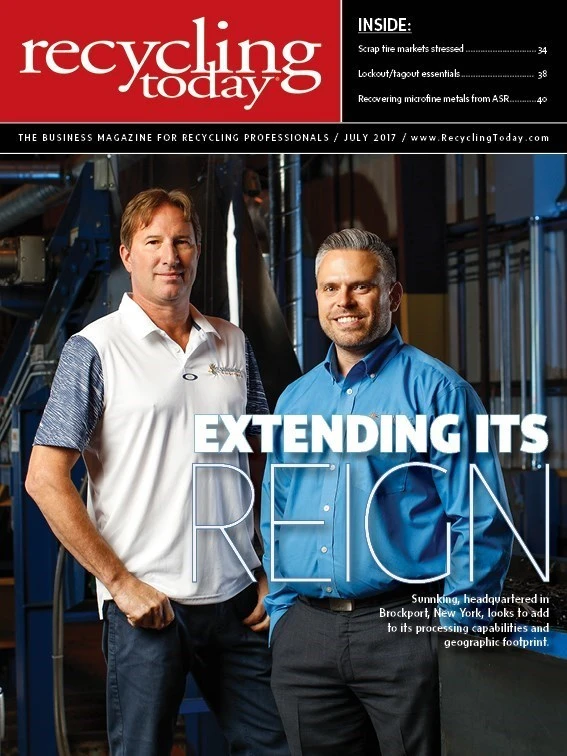Nonferrous scrap traders could face a major disruption courtesy of proposed (but not yet finalized) Chinese trade regulations, according to Ma Hongchang, a consultant in Chinese affairs for the Brussels-based Bureau of International Recycling (BIR). He provided an update on the matter at the Non-Ferrous Metals Division meeting at the 2017 World Recycling Convention, held in late May in Hong Kong.
Ma said China’s Central Committee indicated April 18 that it intended to phase in a policy to create “a drastic reduction in both the quantities and items [of scrap] imported [into China]."
“Base metal prices have started a long-term cyclical upturn.” – John Browning, BANDS Financial Ltd.
He added, “As far as I know, regarding nonferrous metal scrap, scrap motors, scrap wire and cable and mixed metal scrap will be prohibited after the end of 2018.”
In 2017, the multiagency National Sword campaign in China has resulted in raids on plastic and metals recycling firms in provinces and cities throughout China, with more than 150 people arrested for activities considered as “smuggling,” Ma said.

BIR Non-Ferrous Division Chairman David Chiao of Atlanta-based Uni-All Ltd.
Delivering better news was John Browning of Hong Kong-based BANDS Financial Ltd., who said, “Base metal prices have started a long-term cyclical upturn.” Part of the reason, he said, is China’s “One Belt One Road” spending initiative, which will involve more big-ticket, metals-consuming infrastructure projects.
“As far as I know, regarding nonferrous metal scrap, scrap motors, scrap wire and cable and mixed metal scrap will be prohibited after the end of 2018.” – Ma Hongchang, a consultant to the BIR
Ongoing global demand should help metals producers catch up with the increased capacity of the past several years, which caused “base metals [pricing to be] in decline from 2011 to 2016,” Browning said.
While metals production capacity has increased from 2011 to 2016, he said, mining expansions were halted. Even if metals prices rise, “Creating a new mine can take five to eight years,” Browning said, meaning an ore supply deficit could last several years—likely good news for scrap traders.
Get curated news on YOUR industry.
Enter your email to receive our newsletters.

Explore the July 2017 Issue
Check out more from this issue and find your next story to read.
Latest from Recycling Today
- ReMA opposes European efforts seeking export restrictions for recyclables
- Fresh Perspective: Raj Bagaria
- Saica announces plans for second US site
- Update: Novelis produces first aluminum coil made fully from recycled end-of-life automotive scrap
- Aimplas doubles online course offerings
- Radius to be acquired by Toyota subsidiary
- Algoma EAF to start in April
- Erema sees strong demand for high-volume PET systems






